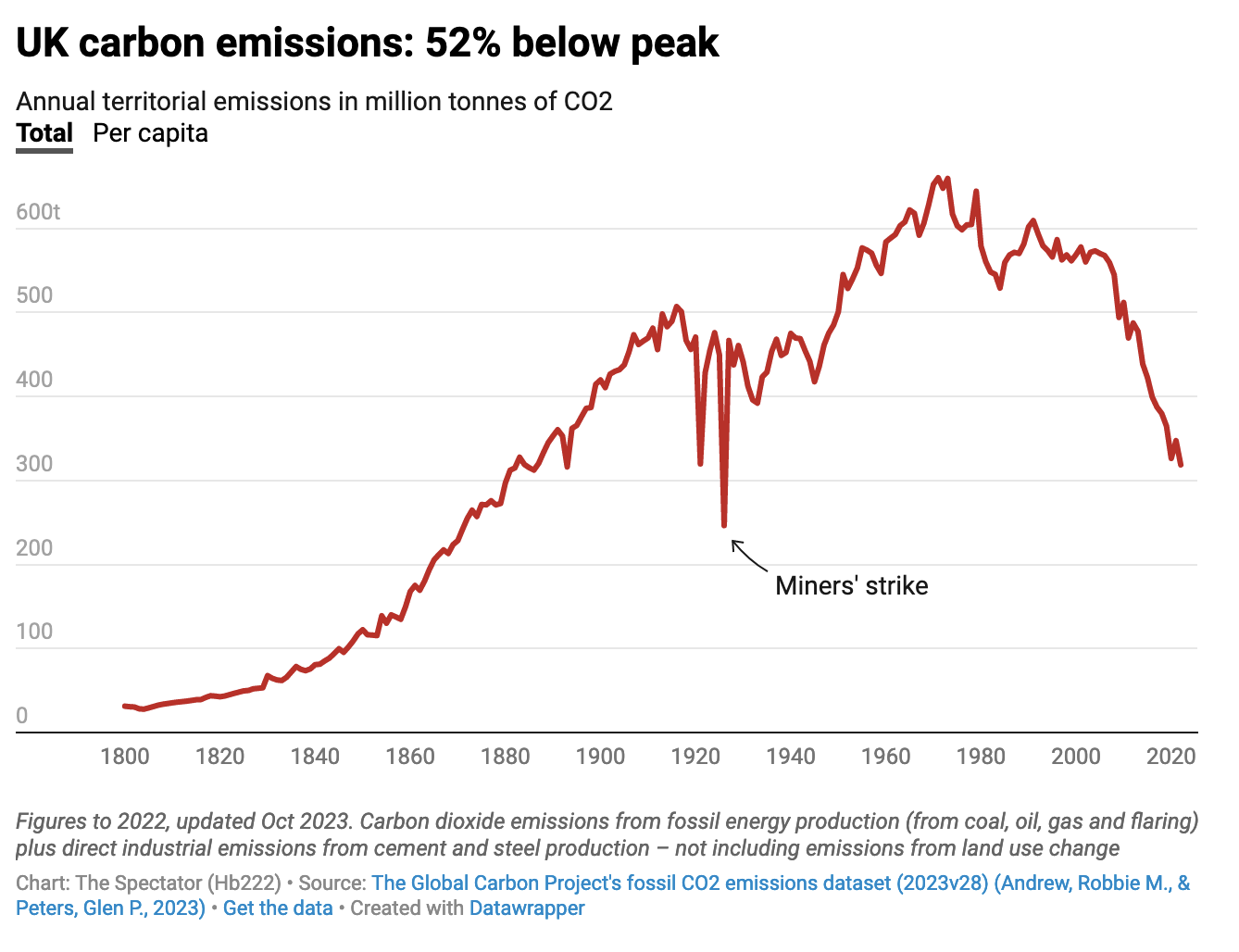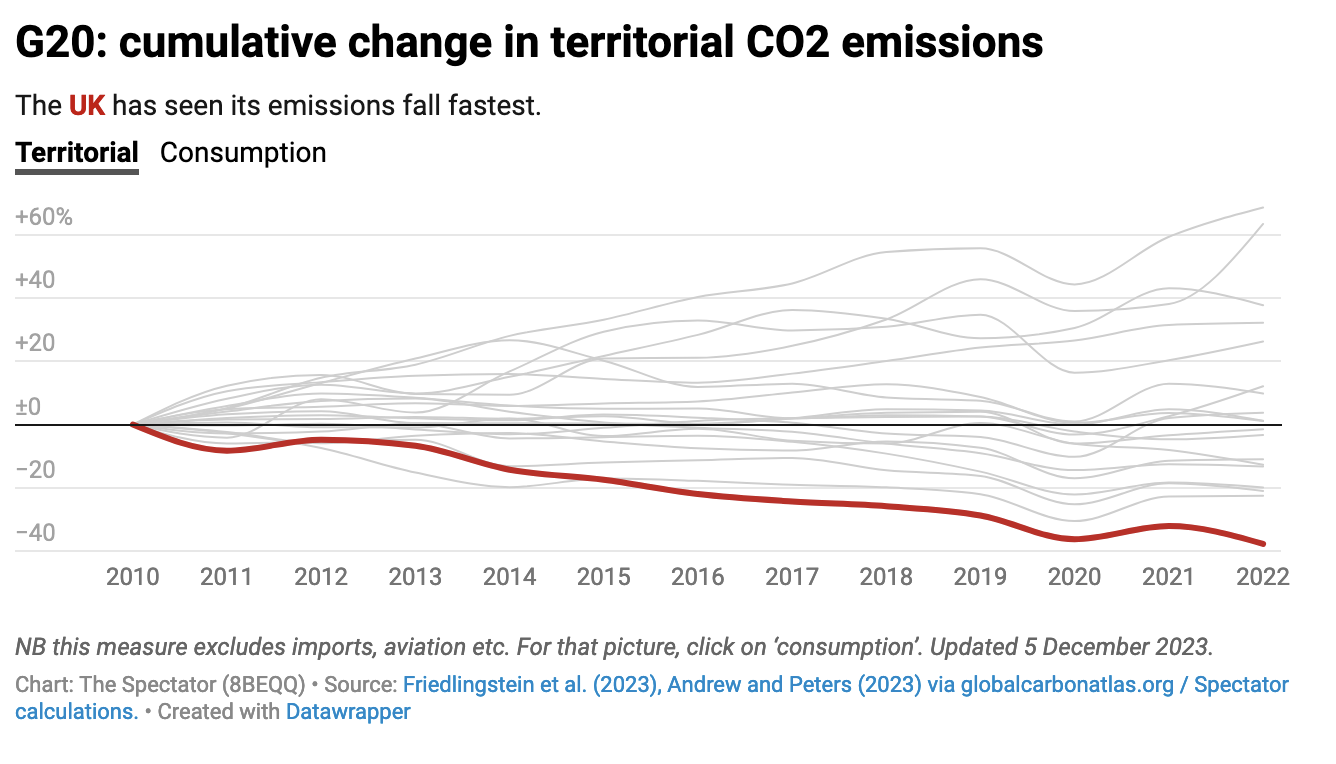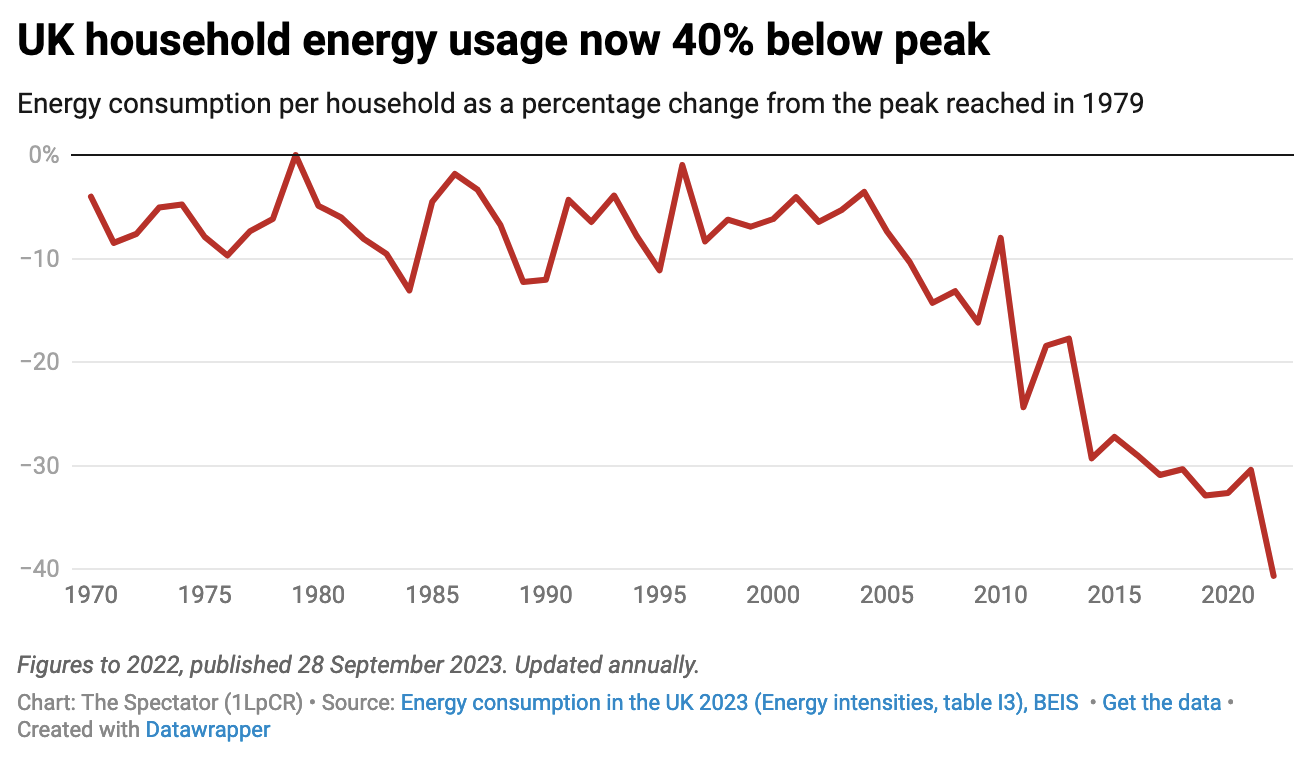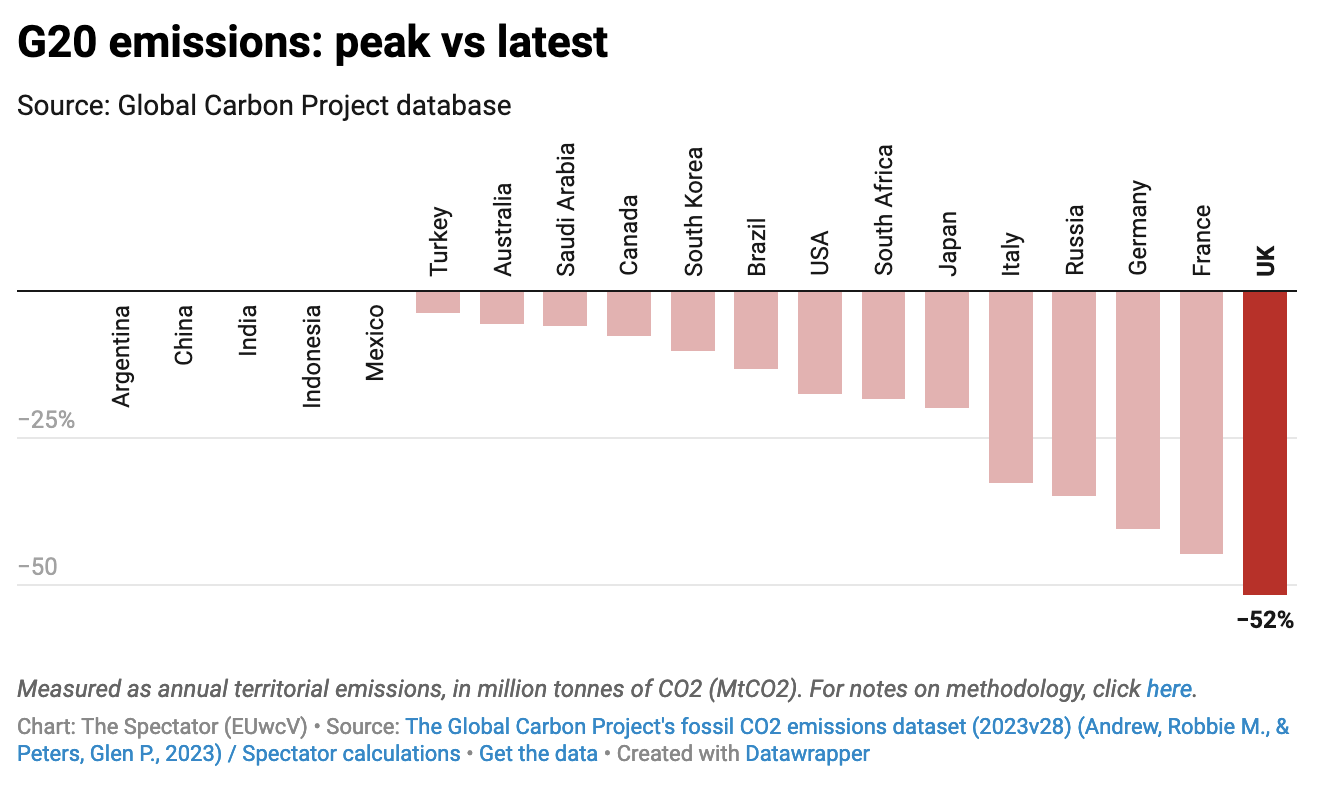A major milestone has just been passed: Britain has become the first major country to halve its carbon emissions. The rapid pace of UK environmental progress means that our output is now below 320 million tonnes – less than half the 652 million tonnes of our 1970 peak. This is in spite of Britain now having a far larger population than 50 years ago and an economy more than twice the size.
Had things gone the other way – if our carbon emissions had doubled, for example – this would be front page news. But I’m not sure you can expect to read about this good news anywhere other than The Spectator. There are no campaign groups tracking it, no politicians likely to trumpet it. The info is tracked by the Global Carbon Project and is one of many metrics collected in the energy section of The Spectator data hub. Here it is, showing (as you’d expect) a drop during the lockdowns, but by 2022 showing a drop driven by efficiencies that takes our emissions lower in a normal year than they were when the economy was being shut down.

The above is quite a simple graph: a country’s total carbon emissions. You can click on ‘per capita’ to see it that way too. Yet a quick Google search shows how hard it is to find this historical perspective anywhere online – and how easy it is to find negative metrics. This is a shame because it means a generation of young people are being brought up only ever hearing one side of the story: that there is a climate crisis that shows little chance of being solved. In fact, Britain is leading the G20 in decarbonisation, even when you factor in imports (the so-called ‘consumption’ table).

So how has this been achieved? By the three drivers of green progress: tech, capitalism and consumer choice. Fuel is expensive, hence innovation means every year devices that use energy are improved so they use less and cost less: even petrol cars travel 50 per cent further on the same fuel as when Blair came to power. Home heating efficiencies (and far-better insulation) means the fuel used by the average home has gone down by 41per cent. The pain of high bills would have been a lot greater if it were not the rapid advances of the last five decades.

You can see this across the board. Progress in agriculture mean that fertiliser use peaked in the mid-1980s. Since then, the total amount of nitrogen used in fields has almost halved and the amount of phosphate is down by two-thirds. Air pollution levels have collapsed; London air is purer now than in medieval times. All of which can be seen on the Spectator data hub.
This provides important context for the NetZero debate. The UK itself generates less than 1 per cent of emissions – so very little that we do, now, will move the global dial. We’re doing more than anyone else which should raise questions as to how much pain to inflict on the average householder through more green taxes.
The below chart shows how much progress the rest of the G20 has made from their carbon peak.

The first five countries – Argentina, China, India, Indonesia and Mexico – are showing no reduction at all because they are at peak carbon right now and setting new records each year. But this needs to be seen in connection with their likely trajectory: when they peak, they’ll be able to fall a lot faster than Britain did due to far-better technology. And coal-guzzling China? As Cindy Yu says in her recent cover piece, China is on track to have its carbon emissions peak by 2030 and aims to be carbon neutral by 2060. Once countries hit the peak, they’ll be able to fall faster due to better tech. As Cindy writes, ‘It took London 50 years to halve its air pollution; Beijing seems to have done the same in five.’
All told, it’s a striking trend – and a useful balance to the often-hyperbolic negativity that is normally used when covering this important story.
Got something to add? Join the discussion and comment below.
Get 10 issues for just $10
Subscribe to The Spectator Australia today for the next 10 magazine issues, plus full online access, for just $10.




















Comments
Don't miss out
Join the conversation with other Spectator Australia readers. Subscribe to leave a comment.
SUBSCRIBEAlready a subscriber? Log in